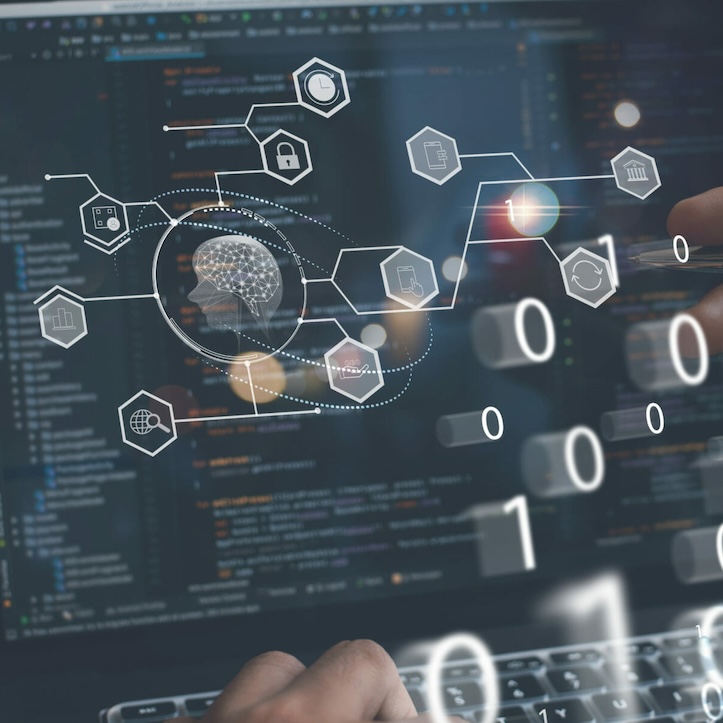
Research
Mission and goals
As part of Arizona State University’s Advanced Capabilities for National Security Institute (formerly the Global Security Initiative), researchers in the Center for Cybersecurity and Trusted Foundations (CTF) are advancing the field of cybersecurity by developing the next generation of cyber reasoning systems capable of automatically identifying vulnerabilities, synthesizing exploits, and generating patches for real-world software. Through partnerships with government organizations and leading technology companies, CTF integrates human expertise with automated cyber reasoning systems to efficiently address emerging cybersecurity risks.
The Center bridges research and education by hosting a large research lab on ASU’s Tempe campus and supporting affiliate labs in collaboration with the School of Computing and Augmented Intelligence. Frequently recognized in top-tier national conferences, their work highlights the role of Arizona State University in driving cybersecurity innovation.
Research Labs
SEFCOM: Laboratory of Security Engineering for Future Computing
Co-Directors: Drs. Gail-Joon Ahn, Tiffany Bao, Adam Doupé, Yan Shoshitaishvili, and Fish Wang
Website: SEFCOM
The Laboratory of Security Engineering for Future Computing (SEFCOM) at Arizona State University focuses on creating a significant societal impact through innovative research, secure development practices, and hands-on training programs. SEFCOM’s dedication to advancing cyberspace security and defense drives its mission to address current and future challenges in the cybersecurity landscape.
Research Areas:
- Program analysis and vulnerability detection/exploitation/mitigation
- Identity management and access control
- Formal models for computer security
- Network and distributed systems security, including mobile and cloud computing
- Cybercrime analysis and vulnerability/risk assessment
Happy Lab: Human Aspects in cyber Protection and PrivacY
Director: Dr. Jaron Mink
Website: Happy Lab
The Happy Lab explores the intersection of human behavior, security, and privacy to develop systems that better protect users. By understanding how people interact with software, the lab aims to safeguard against the misuse of machine learning (ML) while leveraging ML for enhanced security systems. The lab’s work addresses the rapidly evolving challenges in human-centered cybersecurity.
Research Areas:
- Human factors in security and privacy
- Defense against ML-enabled abuse
- Harnessing ML for trustworthy security solutions
PURSUE Lab: PrivatE, Reliable, and SecUrE computing
Director: Dr. Rakibul Hasan
Website: PURSUE
Our research identifies and understands privacy, security, and reliability issues with information technologies and explore mitigation strategies toward a safer technology ecosystem. We take a human-centered perspective to understand the problem space while combining techniques from System Security, AI and Machine Learning, Internet Measurement, Cognitive Psychology and Decision Theory, and Causal Machine Learning methodologies to solve the identified problems.
Research Areas:
- Privacy and Security of large organizational technology ecosystem
- Deception-based proactive cyber defense for critical infrastructure
- Mitigating data privacy and security threats to technology users
- Theoretical models of privacy and security behaviors
RISE Lab@ASU: Reliable, Intelligent, Secure, and Efficient Software and Systems
Director: Dr. Xusheng Xiao
Website: RISE Lab
The RISE Lab focuses on enhancing software reliability and security through cutting-edge AI-enhanced analysis approaches. By combining software engineering with artificial intelligence, the lab seeks to improve the dependability of software and systems in critical applications. The lab’s research aims to address the challenges of modern software systems in an increasingly interconnected world.
Research Areas:
- Large Language Model (LLM)-enhanced software analysis
- Mobile application security and analysis
- Cyber threat detection and investigation
- Blockchain and smart contract security
- Software testing and debugging
Capabilities
011011
110011


